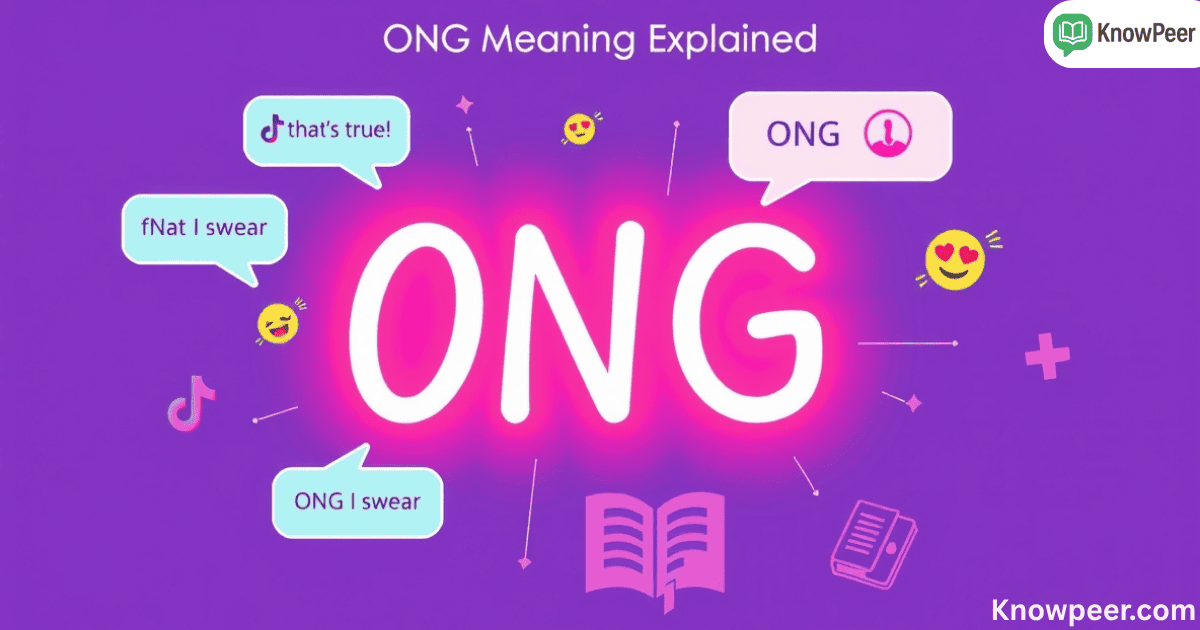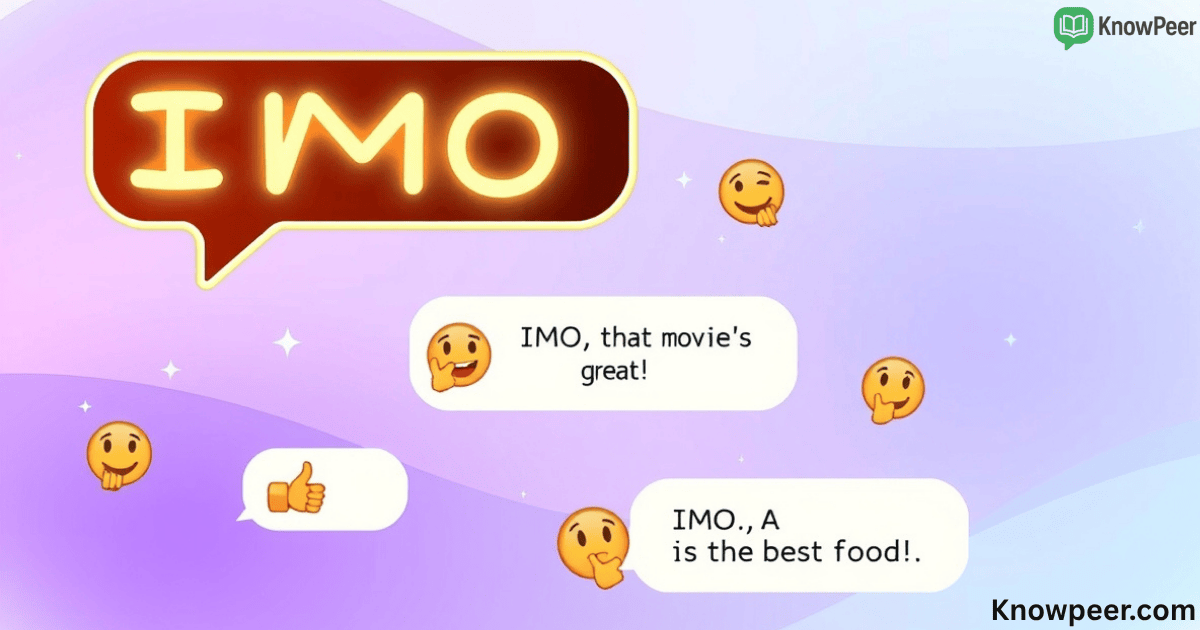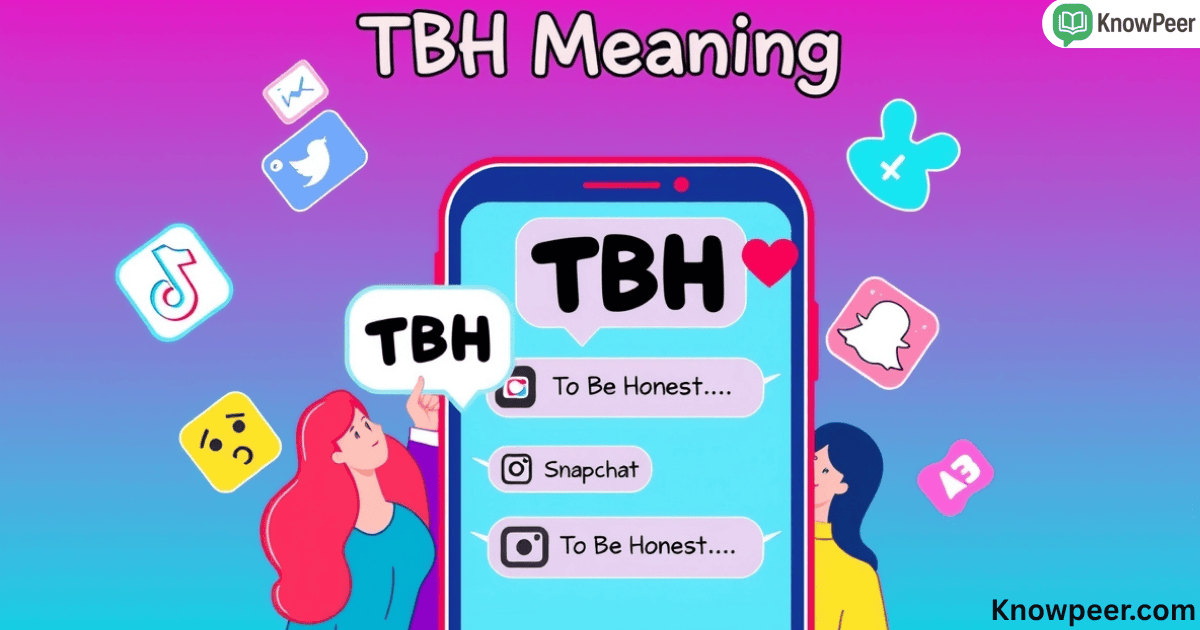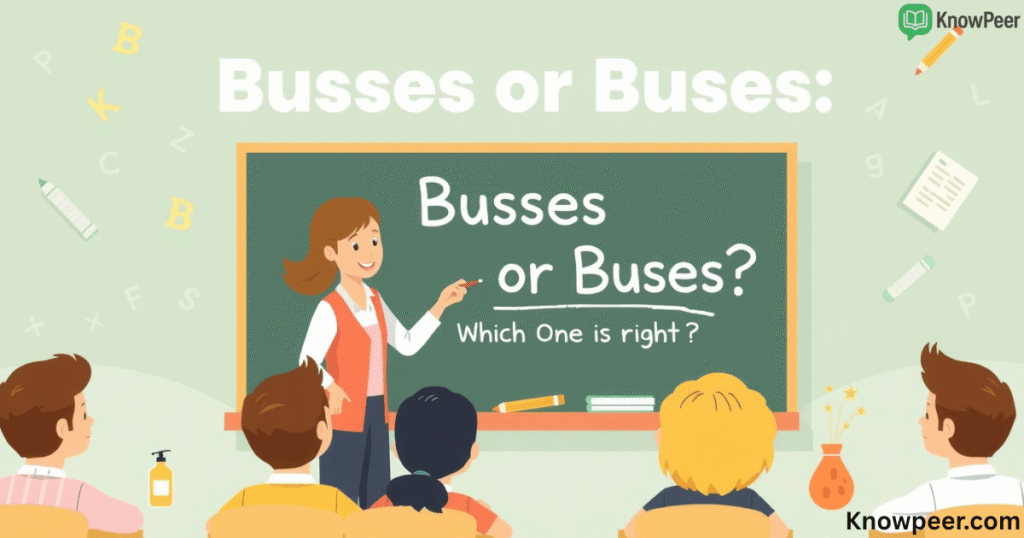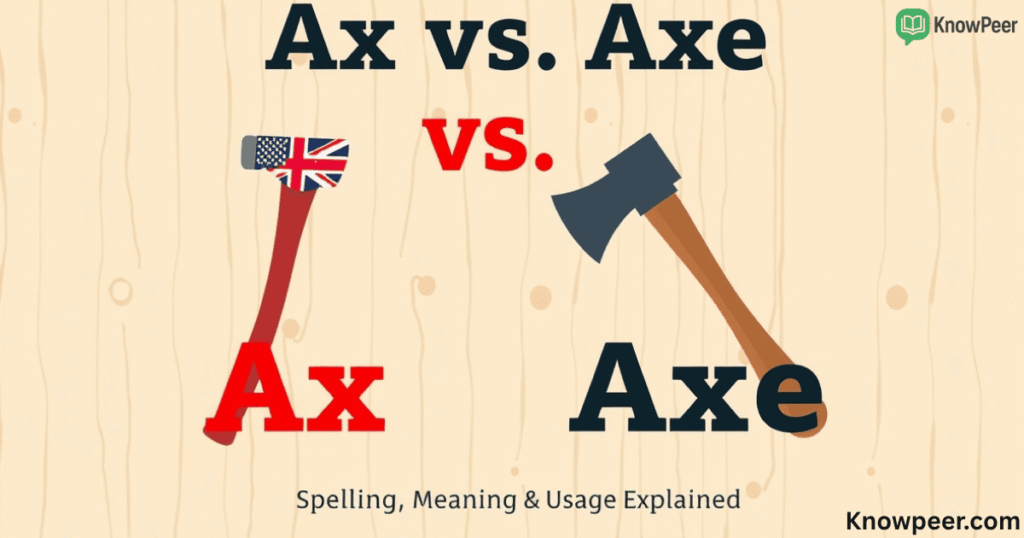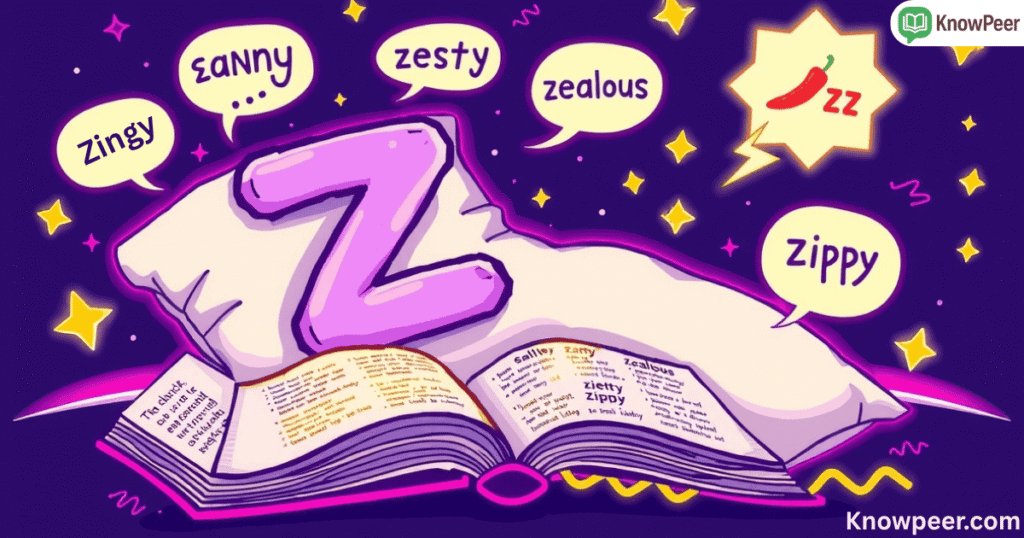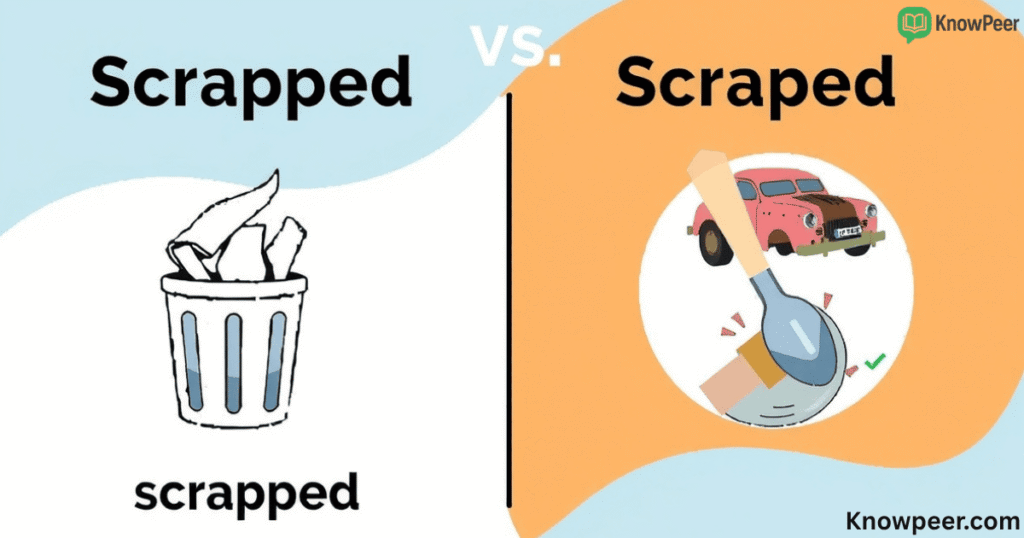What Does HBU Mean in Texting Today?
If someone sends you a message that ends with “HBU?”, they’re not trying to confuse you. They’re simply asking, “How About You?” That’s the full meaning of HBU in texting. It’s a casual way to return a question and show interest in the other person’s feelings or actions. For example, if someone texts, “I’m doing fine, HBU?” they’re inviting you to share how you’re doing too. It’s like a friendly nudge in a conversation.
HBU in texting fits into a larger trend of keeping messages short and simple. People don’t always have time to type out long replies, especially when texting on the go. So they rely on texting abbreviations like HBU, WBU (What About You), and HRU (How Are You) to speed things up. These acronyms are quick to type, easy to understand, and widely accepted across messaging apps like WhatsApp, iMessage, and Instagram.
The meaning of HBU goes beyond just saving time. It also helps keep conversations flowing. It shows that you care enough to ask the other person about their day, thoughts, or opinions. In a world full of fast communication, even a short response like HBU can feel thoughtful.
If you’re wondering what HBU stands for, just remember it’s all about connection. It turns a simple chat into a two-way street. That’s why it remains a popular part of chat slang in both personal texts and casual online conversations today.
Origins and How HBU Became Popular
To understand the meaning of HBU in texting, it helps to look at where it came from. HBU—short for “How About You?”—started showing up in digital chats back in the early 2000s. At the time, people were using text messages, chat rooms, and early messaging apps like AOL Instant Messenger and MSN Messenger. Phones had small screens and limited characters per message, so users had to shorten phrases to save time and space. That’s how texting slang like HBU, WBU, and HRU became popular.
As social media grew, so did the use of digital slang. Platforms like Facebook, Twitter, and later Instagram and Snapchat encouraged quick, casual conversations. People wanted to reply fast, and short forms in texting made that easier. HBU in texting quickly became a go-to response because it was short, easy to type, and polite. It showed interest without being too formal.
Today, HBU is part of everyday online chat terms. You’ll see it used across different platforms, from messaging apps to dating chats. The rise of smartphones made it even more common. Now, people don’t just use HBU in texting—they use it in comment sections, story replies, and group chats too.
The reason HBU became popular is simple: it fits the fast pace of online life. People want to stay connected, but they also want convenience. HBU does both—it’s quick, clear, and keeps the conversation going. That’s why it stuck around.
Where, When & How to Use HBU Appropriately
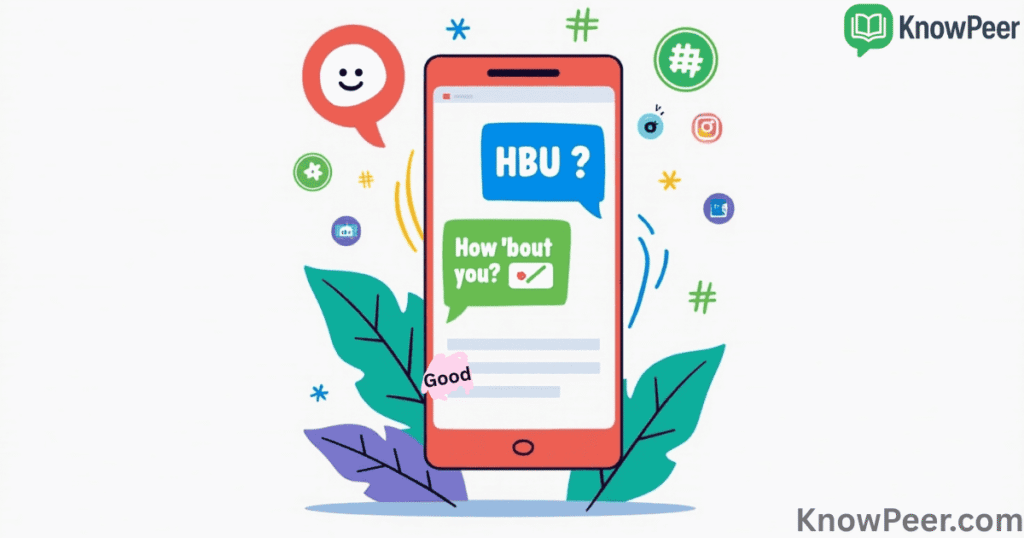
HBU, meaning “How About You?”, is perfect for everyday, casual texting. You’ll often see it in messages between friends, family, or people getting to know each other. It fits best in relaxed chats where the tone is friendly and informal. Whether you’re on WhatsApp, Instagram, Snapchat, Facebook Messenger, or iMessage, using HBU in texting helps make the conversation two-sided.
A typical use might look like this: “I just got home from work. HBU?” Here, the person shares something about themselves, then turns the question around. It’s a natural way to show interest and keep the talk flowing. That’s a big part of why people love texting abbreviations like HBU—they make conversations quicker without losing warmth.
However, knowing when not to use HBU is just as important. You should avoid using it in professional or formal communication. For example, if you’re sending a message to your boss, teacher, or someone you don’t know well, writing the full phrase “How about you?” is more respectful. Informal texting rules don’t apply in the workplace or academic settings, where tone and clarity matter more.
So, when texting a friend or someone in a casual setting, HBU is totally fine and even expected. But in formal situations, go with the full version. Knowing how to use HBU the right way shows you understand the difference between casual and professional chat—and that can make all the difference in how your message is received.
Variations, Alternatives & Similar Acronyms
There are many acronyms like HBU that people use in chats. These are all part of texting slang that makes digital talk quicker and smoother. Below is a table showing some of the most common ones and what they mean:
| Acronym | Meaning |
| HBU | How About You? |
| WBU | What About You? |
| HRU | How Are You? |
| SUP | What’s Up? |
| WYD | What Are You Doing? |
Each of these short forms fits a different moment. For example, you might say “HRU?” at the start of a chat, then later say “HBU?” to ask the same question back. Knowing which to use helps you keep conversations easy and smooth.
Responding to HBU – What to Say Back
Knowing how to respond to HBU makes chatting feel more natural. When someone asks you “HBU?”, they want to hear your thoughts. You can reply with a short sentence or add more detail. Here’s a quick table with text reply examples to help you out:
| Situation | Sample Reply |
| Feeling good | I’m great, thanks for asking! |
| Feeling tired | A bit tired, long day. HBU? |
| Feeling busy | Super busy today, HBU? |
| Being polite | Doing well, and you? |
| Wanting to chat | I’m doing okay. What’s up with you? |
It’s okay to keep it short, but it’s nicer when your reply shows you care too. In texting, tone matters. Using friendly words and emojis makes your response warmer.
Global Usage and Regional Differences
Texting in different regions can change how often people use HBU. In the US, UK, Canada, and Australia, HBU is well-known. It’s part of normal casual texting language. But in some countries, people use different slang or even their own versions of short forms.
In non-English-speaking countries, HBU meaning might not be as clear. People might say the full version or use local phrases instead. For example, Spanish speakers might say “¿Y tú?” which means the same thing. Informal communication styles vary, but the idea behind HBU—keeping a chat going—is the same everywhere.
HBU in Professional or Formal Communication
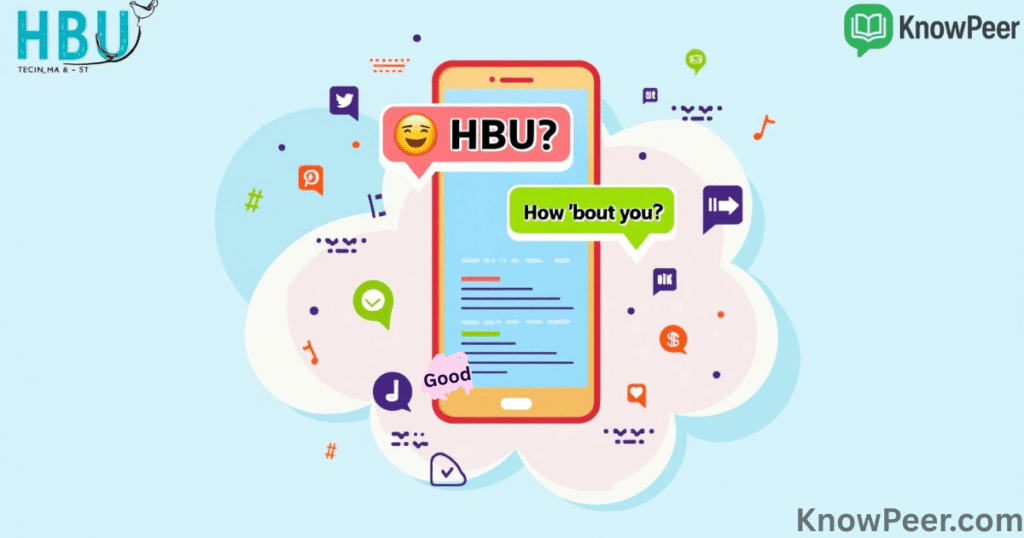
While HBU is common in casual texting, it doesn’t belong in professional or formal communication. If you’re writing an email to a client, speaking to your boss, or messaging someone in a work setting, it’s best to avoid using texting abbreviations like HBU. These informal texting terms may seem lazy or unprofessional in serious conversations. Instead of saying “HBU,” write the full phrase: “How about you?”
In formal communication, tone and clarity matter a lot. Slang like HBU in texting is often seen as too relaxed and can make you appear less serious or respectful. People from different age groups or backgrounds might also misunderstand digital slang, which could lead to confusion or miscommunication.
For example, instead of texting a coworker, “I’ve finished the task, HBU?” try writing, “I’ve completed my part of the task. How about you?” It’s just as clear but sounds more professional.
Understanding when to switch between casual and formal language shows good judgment. So, while HBU is great for chats with friends or informal settings, it’s not the right choice for work emails, academic writing, or professional chats. Always match your tone to the setting.
The Role of HBU in Modern Digital Culture
What does HBU mean in text culture today? It shows how modern chat is all about being quick and easy. People don’t want to write long messages. They want to share ideas fast and keep the flow natural. That’s where chat slang comes in.
HBU has also made its way into slang in social media. You’ll see it in memes, tweets, TikTok captions, and even comment threads. It’s a tool people use to stay connected, show interest, and invite others to share more. That’s why it’s so popular.
What’s Next for Acronyms Like HBU?
As technology grows, we might see acronyms like HBU change. Some slang fades over time, but others stick around. Voice-to-text, AI chat, and autocorrect tools could reduce the need for short forms. Still, people like shorthand because it feels fun and friendly.
The future of texting slang depends on how we choose to talk online. New phrases might replace HBU. Or we might just keep using it because it works. Either way, it’s a part of how we build digital relationships.
Frequently Asked Questions (FAQ)
Q: What does HBU stand for? A: HBU means “How About You?” It’s used in texting and online chat to ask someone the same question in return.
Q: Is it okay to use HBU in a work email? A: No. It’s too casual. Use the full form instead.
Q: What are some similar acronyms? A: WBU, HRU, SUP, WYD are all similar common texting acronyms.
Q: Can I use HBU on Instagram or Snapchat? A: Yes. It’s perfect for informal platforms and personal chats.
Mini-Glossary: Top 10 Chat Abbreviations
| Term | Full Meaning |
| HBU | How About You? |
| WBU | What About You? |
| HRU | How Are You? |
| SUP | What’s Up? |
| TTYL | Talk To You Later |
| BRB | Be Right Back |
| LOL | Laugh Out Loud |
| IDK | I Don’t Know |
| IMO | In My Opinion |
| SMH | Shaking My Head |
HBU meaning in texting is just one piece of the big puzzle that is internet slang. But it’s a useful one. Keep it in your chat toolkit, and your digital convoy will flow even better.
Conclusion
What is HBU? It’s a simple way to keep a chat going. It shows that you care and want to hear back from someone. It’s short, easy, and a big part of texting terms for conversations today. Whether you’re texting a friend or meeting someone new online, HBU makes the chat feel friendly.
Remember, how to use HBU depends on the situation. It fits well in casual settings. Use full phrases in formal talk. And always respond in a kind, open way. The meaning of HBU is more than just words. It’s about making space for others in your conversation.


